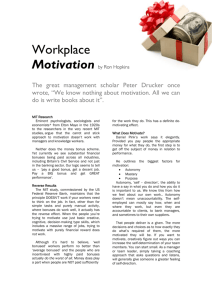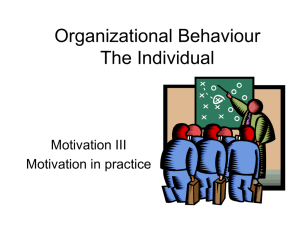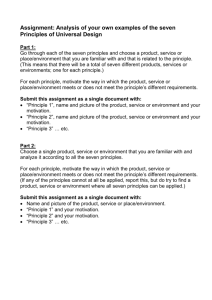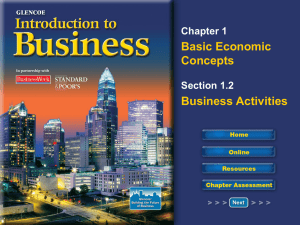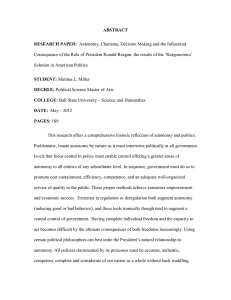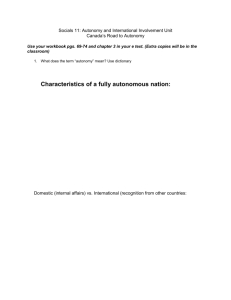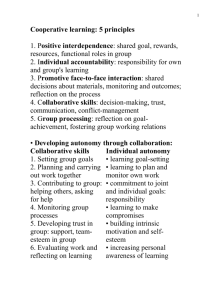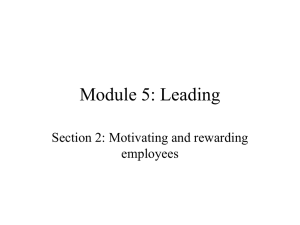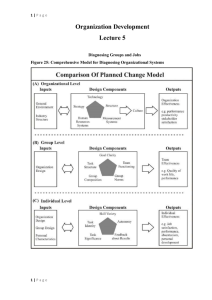Job Characteristics Model: Motivation & Incentives
advertisement
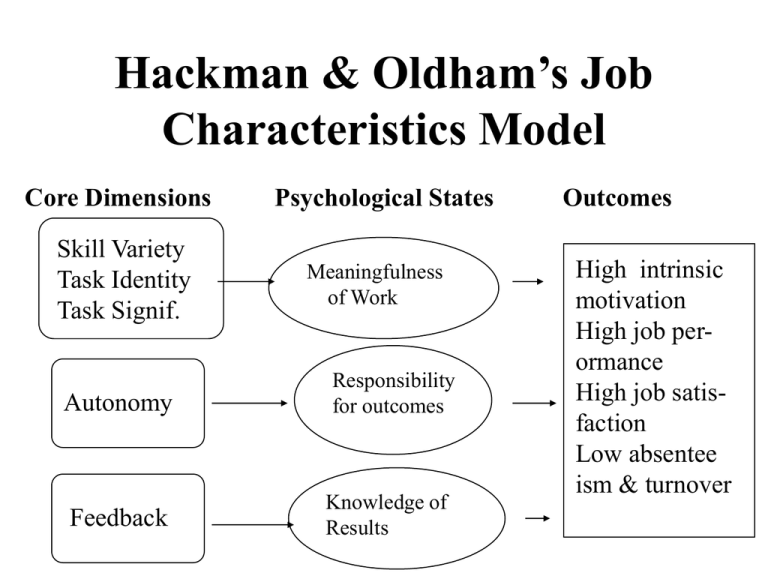
Hackman & Oldham’s Job Characteristics Model Core Dimensions Skill Variety Task Identity Task Signif. Psychological States Meaningfulness of Work Autonomy Responsibility for outcomes Feedback Knowledge of Results Outcomes High intrinsic motivation High job perormance High job satisfaction Low absentee ism & turnover Moderating Variables for the Job Characteristics Model • Growth need strength – job is a vehicle for personal growth, sense of achievement, avenue for feeling success • Knowledge and skills • Satisfaction with extrinsic aspects of work Motivating Potential Score Skill Variety +Task Identity+Task Significance 3 MPS = X Autonomy X Feedback Implementing Concepts for the Job Characteristics Model • Combine tasks: Effects skill variety, task identity, & task significance • Group tasks into natural work units: Effects task significance and task identity • Give workers contact with customers: Effects skill variety, autonomy, feedback • Vertically load jobs: Effects autonomy • Open feedback channels: Effects feedback Designing Jobs for Teams • Team has to be an identifiable group, doing a specified piece of work, and be self-managing • Key behaviors: Ask for ideas, give suggestions,. listen to others, share information, help others • Manager’s role: Make alterations needed for effective group performance, consult Goals That Motivate • • • • Specific Goals Difficult Goals Goal Acceptance Goal Feedback Why Goals Motivate • Mobilize energy in relation to goal • Focus attention towards goals attainment • Encourages setting of action plans or strategies for goal attainment • Encourages persistence until goal is attained Enhancing Goal Acceptance • Participation • Rewards • Supportiveness Incentives for Individuals • For Executives – Compensation tied to achieving strategic goals • For Lower Level Employees – Tied to performance: bonuses, commissions, piecework Incentives for Groups • • • • Team incentives Profit sharing Gain sharing Stock options Where Pay Fails to Motivate • Bonuses or merit pay is too small • Non-existent link between pay and performance • Performance appraisal is done poorly • Effect of unions • Adaptation problems Effective Reward Systems • Set high goals for performance • Develop accurate ways to measure performance • Train supervisors in performance appraisal • Link pay to performance • Make increases noticeable and meaningful Backwards & Forwards • Summing up: Examined how Hackman’s & Oldhams Job characteristics Model can be used to redesign jobs to engage motivation; studied how and why goals setting works & looked at ways to use pay as a motivator • Next time we begin our study of groups in the organization looking at how they function and the role of cohesiveness
